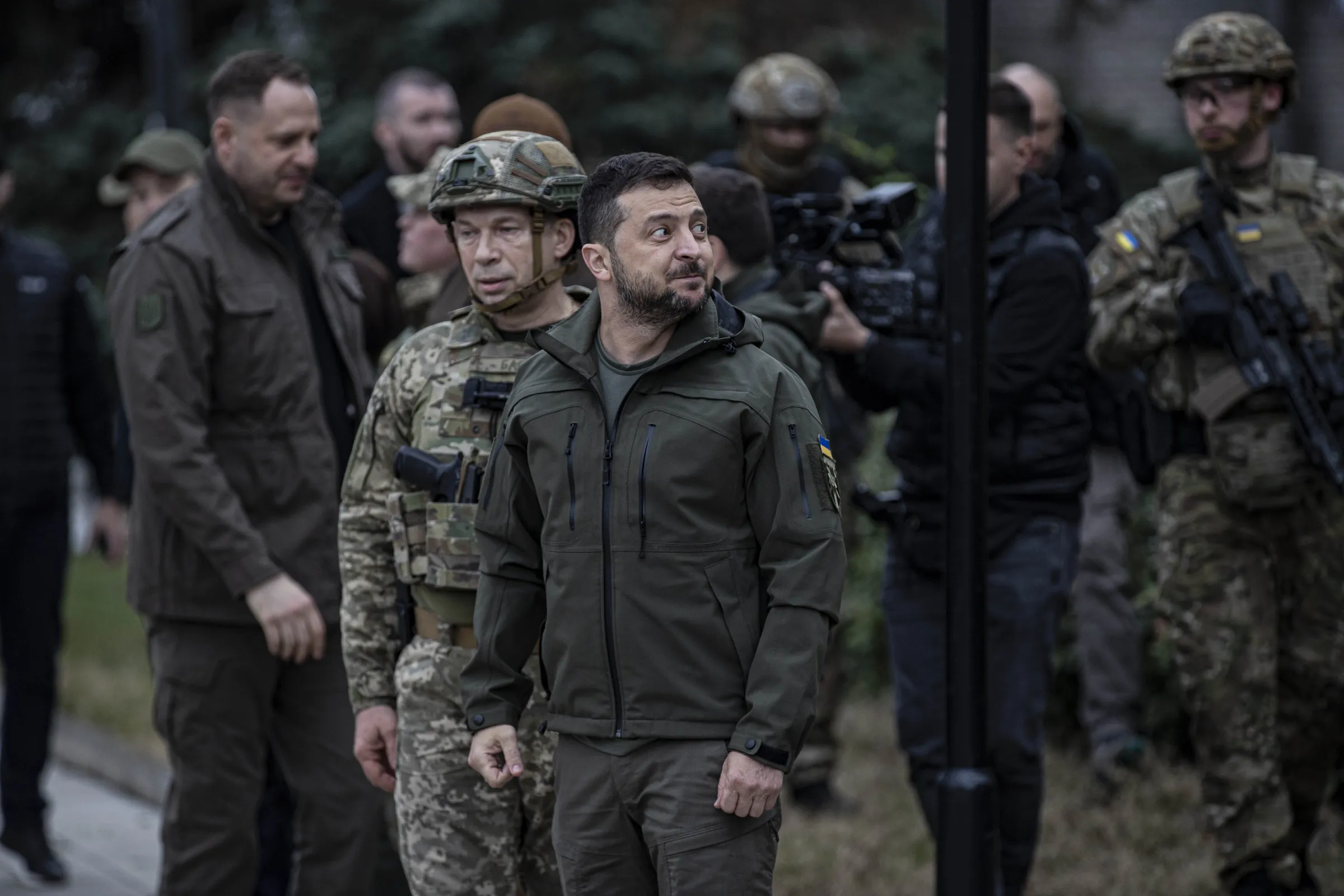Volodymyr Zelenskyy, Ukraine’s president, is facing significant challenges as he seeks to secure increased military aid from the U.S. and broader authorization for Western-supplied weapons amid a crucial visit to the U.S. and the United Nations.
The ongoing Russian advances on the battlefield, coupled with the precarious state of Ukraine’s energy grid and the looming possibility of Donald Trump’s reelection, raise the stakes for Zelenskyy’s mission. His ability to persuade the U.S. to continue supporting Ukraine is under scrutiny, especially as the situation deteriorates.
While the Biden administration is preparing to announce new funding for Ukraine, it appears reluctant to grant Zelenskyy’s request to lift restrictions on American-made missiles. This limitation is seen as a potential hindrance to Ukraine’s ability to strike deeper into Russian territory.
U.S. officials express concern that such a move may not significantly alter the course of the war and could provoke a more severe response from Russia, highlighting a divide in strategy regarding military support.
Zelenskyy is expected to present a detailed “victory plan” during meetings with Biden and other key lawmakers, aiming to gain approval for enhanced military capabilities.
His discussions are not limited to the president; he will also meet with Vice President Kamala Harris and prominent congressional leaders from both parties. While there is bipartisan support for aiding Ukraine, the specifics of military assistance remain contentious, particularly regarding the scope of permitted strikes on Russian targets.
To facilitate immediate support, the U.S. plans a $375 million drawdown of military equipment for Ukraine, alongside a larger $2.4 billion package aimed at bolstering U.S. defense manufacturers to produce new weapons for Ukraine.

This strategy reflects a commitment to maintaining and enhancing military assistance, with significant funds remaining from previously authorized aid packages. The urgency for additional support is underscored by Zelenskyy’s appeals to Congress and the need for a coherent strategy in the face of ongoing Russian aggression.
Zelenskyy’s recent visit to a munitions factory in Pennsylvania has drawn criticism and scrutiny from some U.S. lawmakers, particularly House Republicans. An investigation has been launched regarding potential misuse of taxpayer funds related to security at the event.
The controversy emphasizes the delicate political situation Zelenskyy must navigate, especially as he contends with skepticism regarding the future of U.S. support for Ukraine in light of the upcoming presidential election.
Amid these challenges, there is hope among Ukraine’s supporters in Congress that Zelenskyy’s visit will spur action to ease restrictions on using Western weapons against Russian targets.
Some lawmakers express frustration with the current limitations and emphasize the need for a stronger case to be made for allowing Ukraine greater flexibility in its military operations. Bipartisan discussions continue regarding the provision of longer-range missiles and other crucial military resources.
With the backdrop of the impending U.S. election, Biden’s administration recognizes the urgency of maintaining support for Ukraine, aware that a potential Trump victory could jeopardize ongoing military aid.
While U.S. officials maintain confidence in Ukraine’s ability to withstand Russian attacks, the absence of a clear pathway for regaining all lost territory complicates the situation. Zelenskyy’s media presence and public appeals could play a pivotal role in shaping American public opinion and support for Ukraine.
Zelenskyy’s recent comments regarding U.S. electoral politics have drawn criticism from some Republican figures, who view foreign leaders commenting on U.S. elections as inappropriate. Nonetheless, Zelenskyy’s supporters argue that he is a key figure in the fight against Russian aggression and that his efforts to secure military assistance should not be undermined by political controversies.
The narrative surrounding Ukraine’s resilience continues to resonate with many lawmakers, emphasizing the importance of supporting Ukraine’s sovereignty and territorial integrity in the face of Russian threats.

